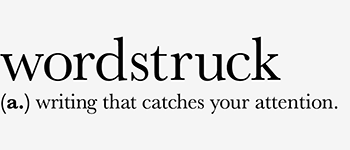
Like physical training, your writing can benefit from exercise. Just like challenging your body, heart and lungs to take on new challenges, you can improve your writing by focusing on your writing practice and trying new things. Here’s how I exercise my writing muscle and keep myself in top writing shape.
Make time for writing
I swim, cycle and run so that I can take part in triathlons. I do weight training to keep me strong and in good shape for my sport too. Yes, it is sometimes hard to fit in physical training. But I know that if I don’t put the effort into consistent training, I’m unlikely to reach my potential, and I risk injury. Training challenges me, and I enjoy it. So I make time for it.
I make time for writing too. Not just as part of my daily routine, which involves creating content for my writing clients. I make time to explore writing outside of my work commitments too.
Time to try new writing challenges. Time to write with no expectations or judgement. Time to play around and enjoy it.
Time for writing can be a regular 20 minutes free-writing to warm up my writing muscles for the day. Or, it can be more intense and concentrated, in the form of a workshop or writing retreat with Dark Angels, or a training event from 26 Characters.
Become a better writer by reading
Most writers start out mimicking their heroes. I did. Somewhere in a box in the attic, there’s an exercise book filled with a story about a girl who runs off on horseback in the dead of night, in the style of C.S Lewis. Reading was how I first learnt the elements of stories, about heroes and conflicts, about character, place and action.
It may seem like a long path to go from writing fantasy tales to writing marketing materials for businesses. But business writing has its heroes with their obstacles to overcome too. It’s just a matter of seeking them out. Call that my daily quest.
Writing stories of my own taught me about structure – about the importance of beginnings, middles and endings. These are important elements in business writing too.
You need a strong headline to catch attention. You need to draw people in, take them on a journey. And then at the end, you need to persuade them to take action.
Become a better writer by analysing technique
While studying English Literature and Language at Leeds University, one of my tutors used to set us the task of writing essays in the style of the writers we were studying – Philip Sidney, John Milton, Alexander Pope.
This was very different from modern writing, but in mimicking the rhetoric, structure, and language of different writers, I learned to appreciate the craft of their writing even more. That meant I could write about it from a position of understanding.
Using metaphor, drawing on all the senses, writing from another person’s point of view, choosing a potent word – these are all techniques I have learned through studying language and literature. And they serve me well as a writer for business today.
Become a better writer by finding your voice
As a writer, the ability to adapt my writing to different styles is a very useful skill. It helps me sound like the brand or company I’m writing for. And I can still do a decent impression of Jane Austen or Charles Dickens, should you need that kind of thing.
But to be authentic, it’s not enough to mimic someone else’s style. You have to develop your own.
While a brand and business may borrow and adopt words and language from its own industry and environment, as a tone of voice consultant, I advise them to look for the things that make them different.
Just as in speaking, we all have our own individual, distinct and recognisable voices, it’s important to find your own voice when you write – whether that’s writing for business or writing for yourself. It’s what makes you different, unique and memorable.
To exercise your writing muscle and improve your writing
-
Make time for writing
-
Make time for reading
-
Try on different voices and see what fits
-
Use what you’ve learned and make it your own
For more tips to help you improve your writing, sign up to my mailing list.

Interesting and helpful, i don’t read enough!